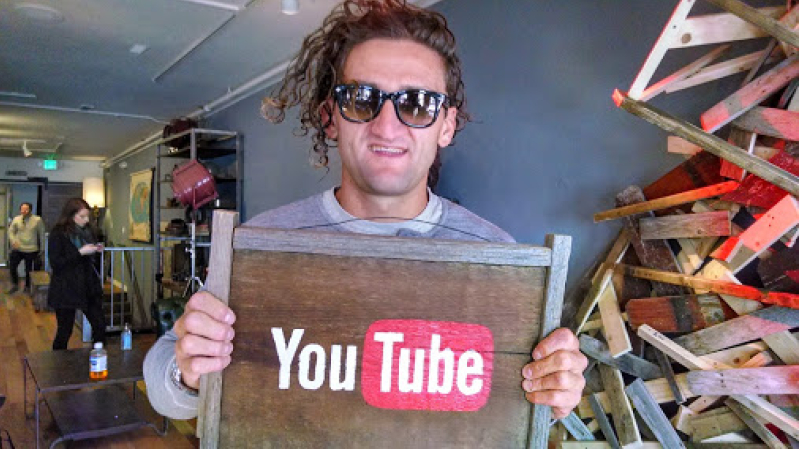
Two of YouTube's most popular stars PewDiePie and Casey Neistat have recently announced they are 'quitting' YouTube for good. The two YouTubers are popular for their daily vlogs, and are testaments to the rags-to-riches potential of posting on YouTube.
Vlog is a new online platform that pieces together video + blog, featuring a journal presented in an audio-visual format. Vlog is popular to the new generation which is known to be leaning towards visual rather than written content. As much as 51.9% of marketing professionals even say video is the "type of content with the best ROI." Also on a recent survey, average daily video views on Facebook doubled from 4 billion video views per day to 8 billion. That was in a span of only seven months.
It is not surprising then that the likes of PewDiePie and Casey Neistat have made it big vlogging on YouTube.
PewDiePie is Felix Arvid Ulf Kjellberg in real life. He is originally from Sweden and is best known for his funny, energetic and uncensored commentaries on daily issues. Sarah Begley of Time Magazine best describes his work as "charismatic narration." In 2013, he got to the top as the most subscribed user on YouTube, even surpassing US singer Rihanna's official channel. In June 2014, PewDiePie has reported earnings of $4 million for 2013 alone.
Casey Neistat is also another YouTube star who rose to fame with his daily vlogs, putting in humor on issues that side on political and social topics. Neistat, from the US, has started vlogging in 2010 and is now a co-producer and co-creator of the HBO series "The Neistat Brothers." Recently, through his social media company Beme, he got a joint deal with CNN worth $25 million.
Derek Muller, another YouTuber popular for his science channel, says that YouTube "can be a bit of a treadmill." He refers to the time constraints daily vloggers are subjected to, wherein creative and well thought-of videos have to be published on a daily basis.
Jonathan Katz, an entertainment attorney, says that daily vlogging can be particularly unkind if a YouTuber wants a sustainable business model. He admits that there are lots of business opportunities on YouTube, but he says those opportunities lead to more things creators have to pursue.
Others see PewDiePie and Neistat's 'quitting' as a form of false publicity, because in reality the two are not putting down their YouTube channels. If anything they will only stop publishing daily vlogs. But Muller suggests this is a good sign for both, as this means they can afford to quit daily vlogging because "they are doing really well from YouTube."






